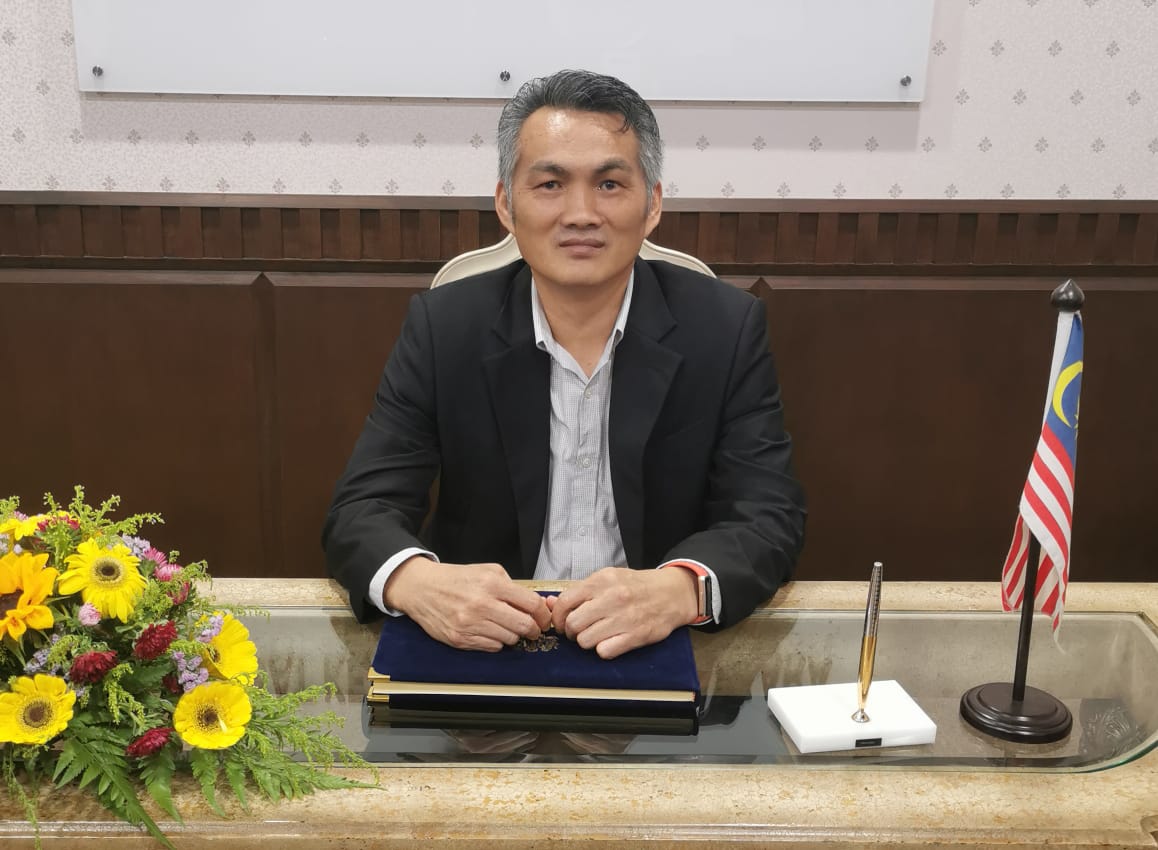As someone who has spent the majority of my career in the government sector, I have always believed in the importance of continuous learning and innovation. Over the past 17 years, I’ve had the privilege of witnessing the evolution of government services in Malaysia, with improvements in efficiency and accessibility. Yet, I’ve always felt that there was more we could do—more room for collaboration, more avenues for innovation. This belief led me to apply for the Cross Fertilisation Programme (CFP) under the Public Service Department, which gives public servants the opportunity to gain insights and experience by working in the private sector.
To my surprise, the private sector company that selected me was Huawei Technologies (Malaysia) Sdn Bhd, a name that I had only associated with smartphones and tech gadgets before. I had no idea that my year-long journey with Huawei would reshape my understanding of digital transformation and how it could impact not just businesses, but public service and governance as well.
When I first joined Huawei Malaysia in November 2023, I was assigned to the Public Affairs and Communications Department (which was later renamed the Business Environment Department, BED). My role as Environmental, Social, and Governance (ESG) Manager was a blend of strategic communication, sustainability initiatives, and corporate governance. But what stood out the most in the early days was the gap between what I thought I knew about Huawei and the reality of what the company actually does.
Initially, like many people, I assumed Huawei’s business was mainly consumer-driven, centered around smartphones, wearables, and other devices. However, I soon learned that these products represented only a small fraction—just 5%—of Huawei’s total revenue. The company’s true strength lies in its Carrier Network Business, Enterprise Solutions, Cloud and AI, and Digital Power initiatives. These business divisions play an instrumental role in building the digital infrastructure that drives global connectivity and digital transformation. Huawei’s presence in Malaysia, for instance, has been a cornerstone of the nation’s telecom and connectivity landscape for over two decades, with the company now serving more than 95% of Malaysia’s connectivity needs.
What struck me most about my time at Huawei was the company’s unwavering commitment to learning and growth. At Huawei, the concept of continuous learning isn’t just a buzzword—it’s an essential part of the company’s culture. Employees are expected to dedicate at least one hour per week to their professional development, and this commitment extends to everyone in the organisation, including senior management.
Through Huawei’s online learning platform, iLearning, employees undergo regular assessments to ensure they are staying ahead of the curve in their respective fields. Even I, with my government background, was required to take part in training programs and exams, which made me realise how critical upskilling is in today’s fast-paced digital economy. This mindset of constant self-improvement is something I believe the public sector can adopt more rigorously.
Beyond formal training, Huawei’s ethos of collaboration and knowledge-sharing was evident throughout my time there. The company places great emphasis on fostering a culture where innovation thrives through teamwork. This approach resonated deeply with me, as I have always believed that the collaboration between diverse sectors—public, private, and non-profit—can drive the most impactful solutions to complex challenges.
One of the most significant highlights of my experience was attending the Digital Leadership Excellence (DLE) Programme in Shenzhen, China, in 2024. The DLE Programme was inspired by Prime Minister Dato’ Seri Anwar bin Ibrahim, who, during the Malaysia ICT Summit hosted by Huawei, emphasised the need for Malaysian leaders to adopt a forward-thinking mindset to drive digital transformation.
The DLE Programme provided an invaluable opportunity to immerse myself in Huawei’s global strategy and witness its cutting-edge technologies in action. A visit to Huawei’s headquarters in Shenzhen exposed me to the company’s vision of digital connectivity—one where technology serves as a bridge to create a fully connected, intelligent world. I saw firsthand how Huawei’s R&D and innovative thinking have positioned the company at the forefront of global technological advancements, from 5G infrastructure to artificial intelligence.
What I found most inspiring about Huawei was its customer-centric approach, which is embedded in every facet of the company. The company’s values are not just words on a wall—they are the driving force behind the company’s operations and success. At Huawei, innovation isn’t just about creating new products; it’s about solving real-world problems and driving positive societal impact through technology. This focus on purpose-driven innovation is something I believe public sector organisations can learn from, particularly as governments worldwide are increasingly looking to digitally transform and create more efficient, accessible public services.
Reflecting on my journey, I now see how technology can play a pivotal role in reforming public service. Just as Huawei has used its technological expertise to empower businesses and governments globally, the same principles can be applied to improve governance in Malaysia. By embracing a culture of continuous learning, agility, and collaboration, we can create a public sector that is not only more efficient but also more adaptive to the challenges of the future.
As my time at Huawei Malaysia comes to an end, I feel incredibly grateful for the opportunity to learn from one of the world’s leading tech companies. My experience has equipped me with a wealth of knowledge and insights that will serve me well as I continue my career in the public sector. The lessons I’ve learned about upskilling, innovation, and collaborative leadership will undoubtedly guide me as I strive to implement positive changes in government processes and services.
I extend my heartfelt thanks to Vice President Mr. Oliver Liu and the talented team at the Business Environment Department for their mentorship and support during my tenure. As I return to the public service, I will carry with me the invaluable lessons from Huawei, and I am excited about the future opportunities to bridge the gap between the private and public sectors, leveraging the power of digital transformation for the betterment of our society.










